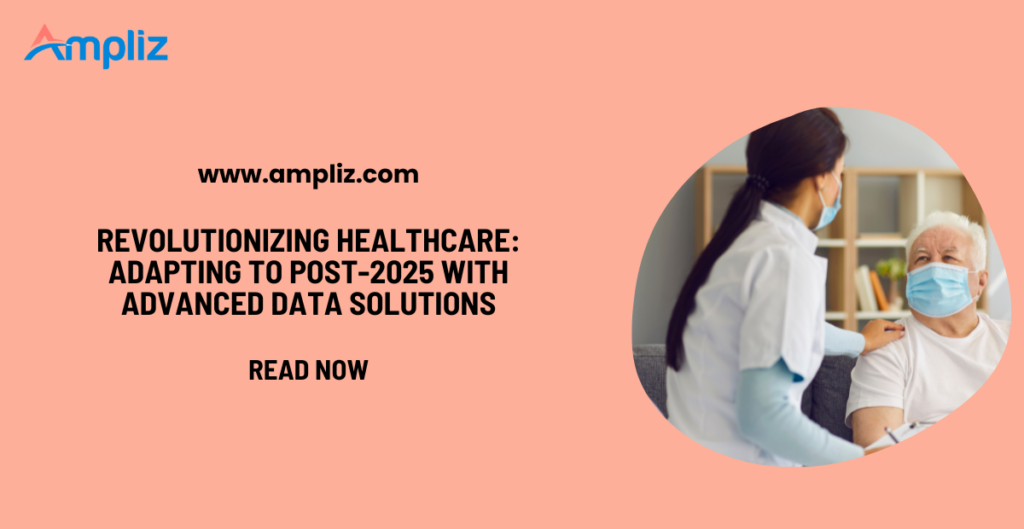The healthcare industry is navigating a transformative era driven by the immense potential of data to address pressing challenges. From personalized care to streamlining operations, data solutions are revolutionizing how providers deliver services and engage with patients.
As evolving demands, technological advancements, and global health crises reshape the landscape, leveraging insights from big data has become more crucial than ever.
These tools not only improve efficiency but also empower better decision-making and equitable access to care. The healthcare sector is poised to overcome hurdles while unlocking new opportunities for healthier outcomes across communities worldwide.
10 Ways the Healthcare Industry Can Revolutionize Operations by Leveraging Data to Address Upcoming Challenges
1. Personalized Patient Care
Personalized patient care is becoming the cornerstone of modern healthcare, thanks to advanced data solutions. By utilizing a patient’s medical history, genetics, lifestyle habits, and real-time health monitoring, providers can create highly customized treatment plans.
This approach not only improves outcomes but also enhances patient satisfaction by addressing unique needs rather than offering a one-size-fits-all solution.
Healthcare app trends are increasingly leveraging predictive analytics to transform patient care. Predictive analytics further allows for early detection of potential health issues before symptoms develop, creating opportunities for preventive care. As we move forward, personalized care driven by data will redefine how healthcare is delivered, making it more precise and impactful.
2. Proactive Management of Disabilities
Proactively managing disabilities in healthcare requires a strategic, data-driven approach to improve support systems and outcomes. By analyzing patient data, providers can identify needs, customize care plans, and ensure patients gain access to appropriate resources.
For instance, leveraging technology like wearable devices enables real-time monitoring of conditions, helping prevent complications before they escalate. Additionally, awareness of existing frameworks is vital in crafting better solutions for individuals with disabilities.
The US has 4 types of main disability programs that play a role in financial and medical support for eligible individuals. Integrating these tools with innovative data solutions fosters more efficient care and empowers patients to live healthier, more independent lives long-term.
3. Enhanced Decision-Making Through AI and ML
Artificial intelligence (AI) and machine learning (ML) are transforming healthcare decision-making by providing powerful data insights. These technologies analyze vast amounts of information, spotting patterns and trends that humans might overlook.
For example, predictive models can assess patient risks, assist with early diagnosis, or recommend tailored treatment plans based on historical data. They also support administrative decisions, like optimizing workflows or resource allocation in large networks.
By integrating AI and ML into daily operations, healthcare providers can make faster, more accurate choices—ultimately leading to improved patient care and more efficient use of resources in an increasingly complex landscape.
4. Remote Patient Monitoring Became Easier
Remote patient monitoring (RPM) has become more effective and accessible with advancements in data technology and wearable devices. Patients can now be monitored from the comfort of their homes, reducing the need for frequent hospital visits.
Real-time data tracking allows healthcare providers to check vital signs, detect irregularities, and intervene early when needed. This not only enhances patient care but also reduces the burden on healthcare facilities. Particularly for managing chronic illnesses like diabetes or heart disease, RPM empowers both patients and doctors with actionable insights. As healthcare embraces digital innovation, understanding trending healthcare mobile app features becomes essential for enhancing patient engagement and streamlining care delivery through intuitive, data-driven applications.
This fosters better health outcomes while improving accessibility in care delivery.
5. Streamlined Administrative Processes
Data-driven solutions are transforming healthcare administration by eliminating time-consuming inefficiencies. Automating tasks such as appointment scheduling, billing, and insurance claims ensures greater accuracy and frees up staff to focus on patient care.
For example, AI-powered tools can quickly verify insurance details, flag discrepancies, or process paperwork faster than manual systems ever could.
Additionally, electronic health records (EHRs) provide seamless access to patient information across departments, reducing redundancy and miscommunication. When you optimize these processes through data technology, healthcare organizations not only save time and money but also deliver smoother experiences for both patients and providers alike.
6. Predicting Public Health Crises Early
The ability to predict public health crises early has significantly improved with advancements in data analytics. When you monitor large datasets, such as disease patterns, environmental factors, and population behaviors, healthcare organizations can identify emerging threats.
For instance, predictive models can flag unusual spikes in symptoms reported across regions or detect potential outbreaks based on travel patterns.
This proactive approach allows governments and providers to prepare resources, implement containment strategies, and communicate effectively with the public.
Using data-driven insights ensures faster responses during emergencies, ultimately minimizing the spread of diseases and saving countless lives in critical situations.
7. Improving Healthcare Accessibility
Data analytics plays a key role in breaking down barriers to healthcare by pinpointing gaps in access. When you examine patient demographics, geographic trends, and socioeconomic factors, providers can identify underserved areas and bridge inequalities.
For example, telehealth services have been rapidly expanding due to these insights, offering care to rural populations or those with mobility challenges.
Not only that, but resource allocation becomes more strategic when guided by data—ensuring that communities lacking clinics or specialized care receive the attention they need.
This data-driven approach not only improves accessibility but also creates a more equitable healthcare system for all individuals, regardless of location.
8. Supply Chain Optimization
Supply chain optimization in healthcare has gained immense importance, especially during times of crisis. By leveraging advanced data analytics, providers can predict demand accurately and maintain an efficient inventory of supplies like medications, vaccines, and protective gear.
For example, predictive algorithms analyze usage trends to prevent overstocking or shortages while ensuring resources are available where they’re needed most. Real-time tracking further enables better distribution and reduces delays in emergency deliveries.
Streamlining supply chain management lowers costs and minimizes waste, helping healthcare systems stay prepared while delivering timely care without disruptions or resource gaps.
9. Enhancing Medical Research
Advanced data solutions are revolutionizing medical research by enabling faster analysis and deeper insights. Researchers can leverage large datasets from clinical trials, patient records, and genomic studies to identify patterns that lead to groundbreaking discoveries.
For instance, machine learning algorithms can quickly analyze genetic information to pinpoint predispositions for certain diseases or predict how patients might respond to treatments.
Also, real-world data helps researchers evaluate the effectiveness of new medications or therapies outside controlled environments. These tools not only accelerate innovation but also drive more precise interventions, ultimately advancing global healthcare and improving outcomes for patients around the world.
10. Monitoring Chronic Disease Trends
Data-driven tools have become essential for monitoring chronic disease trends across populations. By analyzing large-scale health data, healthcare providers can identify patterns in conditions like diabetes, hypertension, or asthma and respond proactively.
For instance, predictive analytics can forecast potential surges in cases or highlight at-risk groups needing immediate intervention. Wearable devices further empower patients to track their own health metrics in real-time while sharing actionable insights with their doctors.
This approach enhances early detection and improves long-term management strategies, ensuring a better quality of life for patients dealing with lifelong chronic illnesses.
This is How the Healthcare Industry Can Revolutionize Operations
The future of healthcare lies in the smart use of data to tackle emerging challenges and pave the way for more efficient, accessible, and personalized care.
As professionals, policymakers, and stakeholders in the industry, it’s essential to embrace innovative solutions that improve operations while putting patients first. Whether you’re leading a healthcare team or exploring ways to contribute to this transformation, now is the time to act.
When you leverage advanced data tools and technologies thoughtfully, we can collectively build a system that not only meets today’s needs but anticipates those of tomorrow.


